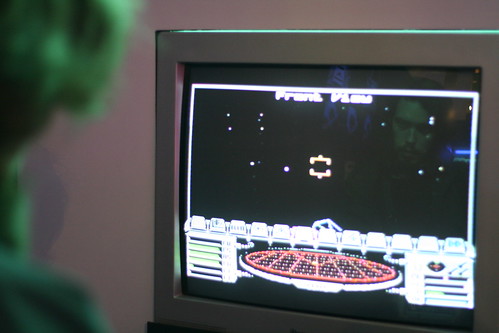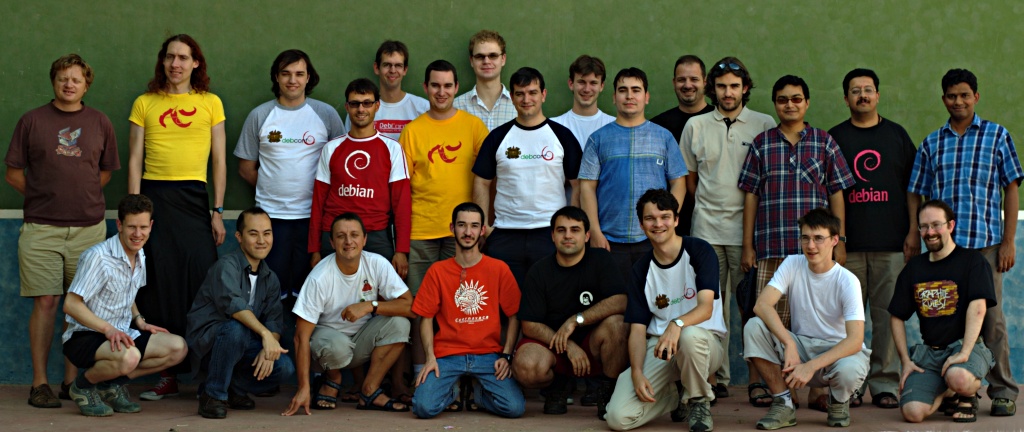More and more early adopters choose to use Ubuntu instead of Debian. Ubuntu has newer versions of the software that matters (XOrg, FF, OOO, Gnome,...) than the stable Debian or, sometimes than even the unstable Debian. Early adopters are the users that are most eager to try new shiny things, do not scream too much if those things break and seem to make good bug reporters. They are the key second level - just below the developers and above most users in the pyramid of software development and use. They are also the people that have a tendency to become developers. That is why I have this feeling that capturing early adopters is essential to development of a thriving free software community. How can that be done? I do not know, but I have an idea that might just work.
What I envision is a merger of development processes of Debian, Ubuntu, Knoppix, Skolelinux and all other Debian derrived distributions. The base for this merger would be an eternal unstable line where all developers would be encouraged to put the newest and greatest software - THE place to be if you want to be on the bleeding edge. I see this unstable line being much newer then Debian unstable, but retaining similar level of quality (how? it is a good question). Then there would be a set of tools available to splice packages from this unstable line into a stabilisation and stable branches for each distribution. The tools would be the same for all distributions and the packages would be the same for all distributions, the difference between distributions would be achieved by the way that the packages and their specific versions are chosen, patches applied for a particular distribution and in some ways by the assembly of the final release media. The proper Debian releases in this context would be no different then Ubuntu releases but will be created using different criteria and at different times. The tools must be powerful enough so that release preparations of any distribution (including Debian proper) would not need to slow down the progress of the flow of new features into the eternal unstable line.
The infrastructure needed to operate such complex system would be immense. It would need to have some similarities to the systems Debian uses for distribution, release and bug management, it would need to have some similarities to Ubuntu's Launchpad (just free, understandable, usable and well documented), and I think that it would also need to have some similarities to Gentoo's Portage system (distros do want to recompile packages with different options and with their own library versions). It would also help if this unstable line could still hold few parallel versions of one package - like the latest release and the cvs version. (However I am pressed to even imagine all the complexities this would bring into apt and bug reporting/debugging.)
I think that such structure will not only concentrate the scarce resource that are the early adopters in a place that will benefit all distributions, but will also provide extra dimensionality for social and technical growth for The Debian Project. The Debian Project will turn from a single great distribution to a swarm of wonderful distributions with a strong central spine - the eternal unstable line.
An additional benefit to this will be that it will be possible to fork Debian if social pressures require that (like it happened with gcc vs. eggc) for the benefit of all free software users. Like, for example, the David's steering commitee whould not disturb the Debian main line until it has been proven to work - it could be formed, it could set goals for a branch and feel in total control of their release goals and methods. After the steering commitee makes a successful release, it would be only a matter of a political decision of whether to call that release Debian proper or not.
Note: As always this is just an uniformed rant of a relatively passive DD who is blissfully ignorant of pretty much everything, so please tell me if and why it can or can not be done.
P.S. While I am in such writelly mood, I should probably write that free software advocacy article for a new journal that I promised them a month ago.
P.P.S. If the system is written with it in mind, then each user's computer could theoretically be a separate distribution which keeps a splice of Debian unstable line (or any subline) with local modifications and possible local compilation options. If done right, this could also provide a ground for merging up with Gentoo.
P.P.P.S. After reading trough logs of several bugs on the Launchpad, I have a feeling that Ubuntu is being flooded by much more bugreports then Cannonical is designed to handle (especially for free). I am not pointing fingers here, I am just suggesting that it is another facet of the same problem and that this idea of mine could reduce this load and let Ubuntu developers concentrate on what they really want to do.

